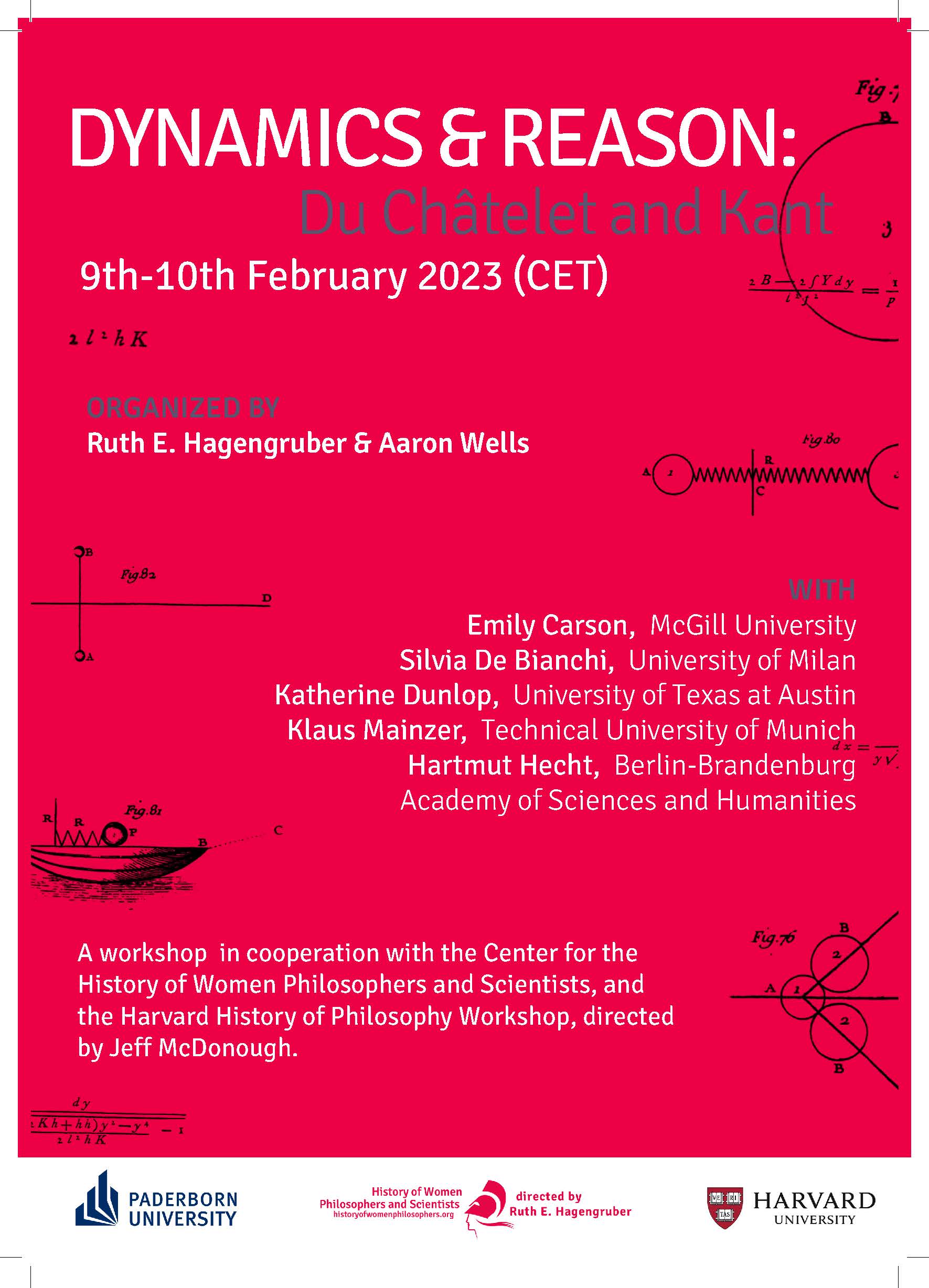 For many years, Hagengruber and her research group dedicated their endeavor to unveil the importance and influence of Du Châtelet’s reading for Kant presenting the results in Du Châtelet and the Transformation of Metaphysics , Emilie Du Châtelet and the German Enlightenment and Époque Emilienne.
For many years, Hagengruber and her research group dedicated their endeavor to unveil the importance and influence of Du Châtelet’s reading for Kant presenting the results in Du Châtelet and the Transformation of Metaphysics , Emilie Du Châtelet and the German Enlightenment and Époque Emilienne.
On February 9 and 10, under the direction of Ruth Hagengruber and supported by Aaron Wells the world’s first conference on Du Châtelet and Kant took place at the Center for the History of Women Philosophers and Scientists. A group of international scholars spoke at the hybrid workshop on Du Châtelet and Kant, discussing them from the perspective of the history of philosophy, but also with respect to their influential heritage in more recent philosophy and physics.
Watch the teaser for our workshop here.
To what extent Kant was influenced by key features of Du Châtelet’s work? Her theory of space and time, her distinctive version of idealism, and her account of mathematical objects as partly dependent on our faculty of imagination are echoed in Kant.
Much work remains to be done on how the two philosophers fit in on such topics as theory of hypotheses, matter theory and infinite divisibility, the nature of fire and imponderable fluids, the historical background to Kant’s phoronomy, and critical responses to Descartes and Cartesianism. Many of these topics were in fact addressed in talks at the workshop. Research was presented on (among other topics): Du Châtelet’s theory of fire, account of scientific hypotheses, theory of the structure of matter, views on mathematical truth, conceptions of time and change, and account of space in connection to inertial structure in physics.
A key aim of the workshop is to enable future international cooperation in research on Du Châtelet and Kant, for example through an edited volume currently in preparation, as well as future international research events on related topics.
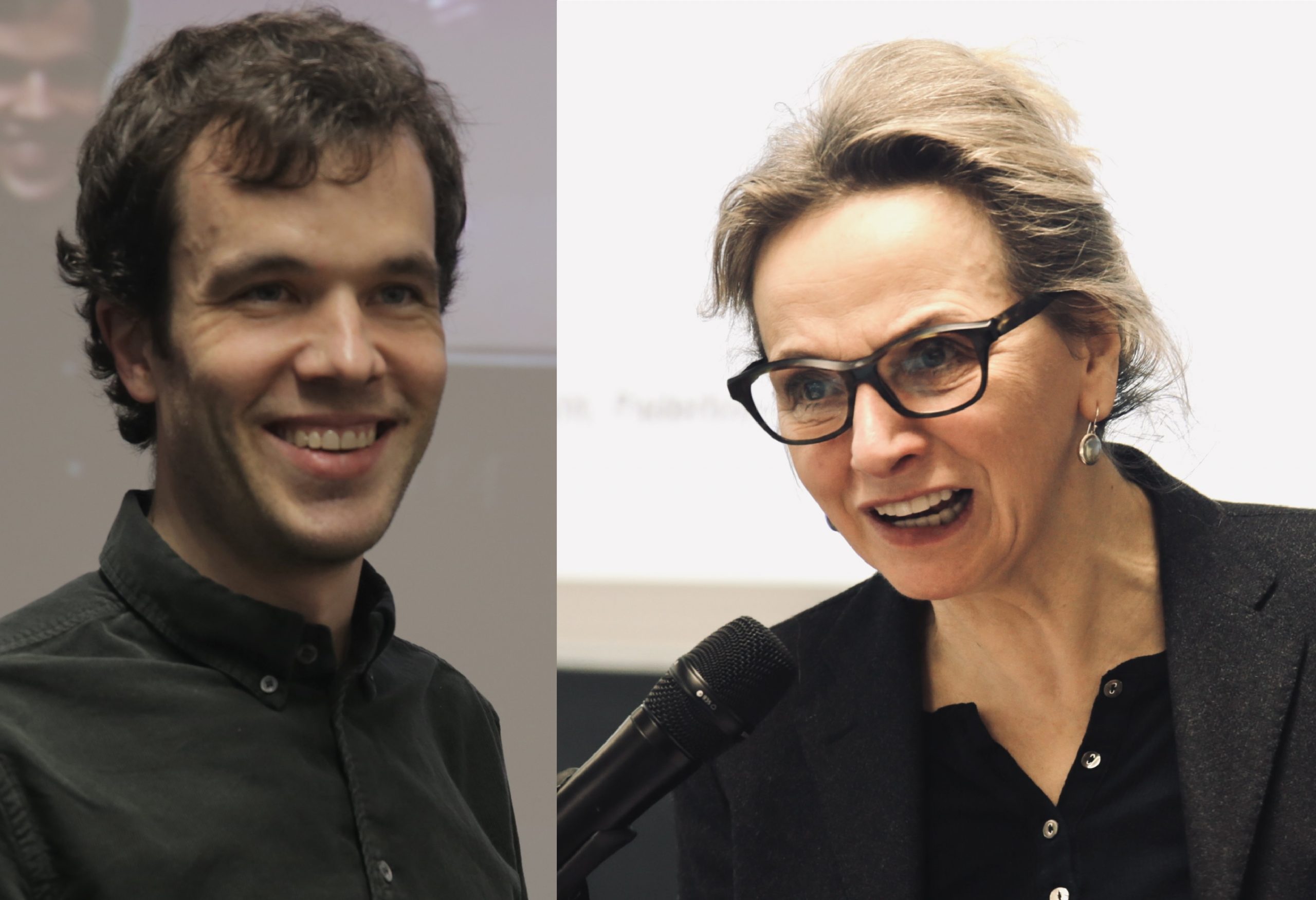
The workshop was organized by Prof. Ruth Edith Hagengruber, who directs Paderborn University’s Center for the History of Women Philosophers and Scientists and Dr. Aaron Wells, postdoctoral research fellow at Paderborn University. The workshop was held in collaboration with Harvard’s History of Philosophy Workshop with Prof. Jeff McDonough (Harvard University)
The invited keynote speakers at the workshop were Prof. Emily Carson (McGill University, Canada), Prof. Silvia De Bianchi (University of Milan), Prof. Katherine Dunlop (University of Texas, Austin), Dr. Hartmut Hecht (Berlin-Brandenburg Academy), and Prof. Klaus Mainzer (TU Munich), who is also president of the European Academy of Sciences and Arts. Prof. Birgitt Riegraf, the President of Paderborn University, contributed a welcome address. Additional scholars joined the workshop from philosophy departments in the United States (University of North Carolina, Duke University, The Ohio State University, and St. John’s University), as well as the Nordic countries (Eastern Finland University). Finally, talks were chaired by Prof. Brigitte Falkenburg (TU Dortmund) and Prof. Riccardo Pozzo (University of Rome Tor Vergata and the Pontifical Academy of Social Sciences).
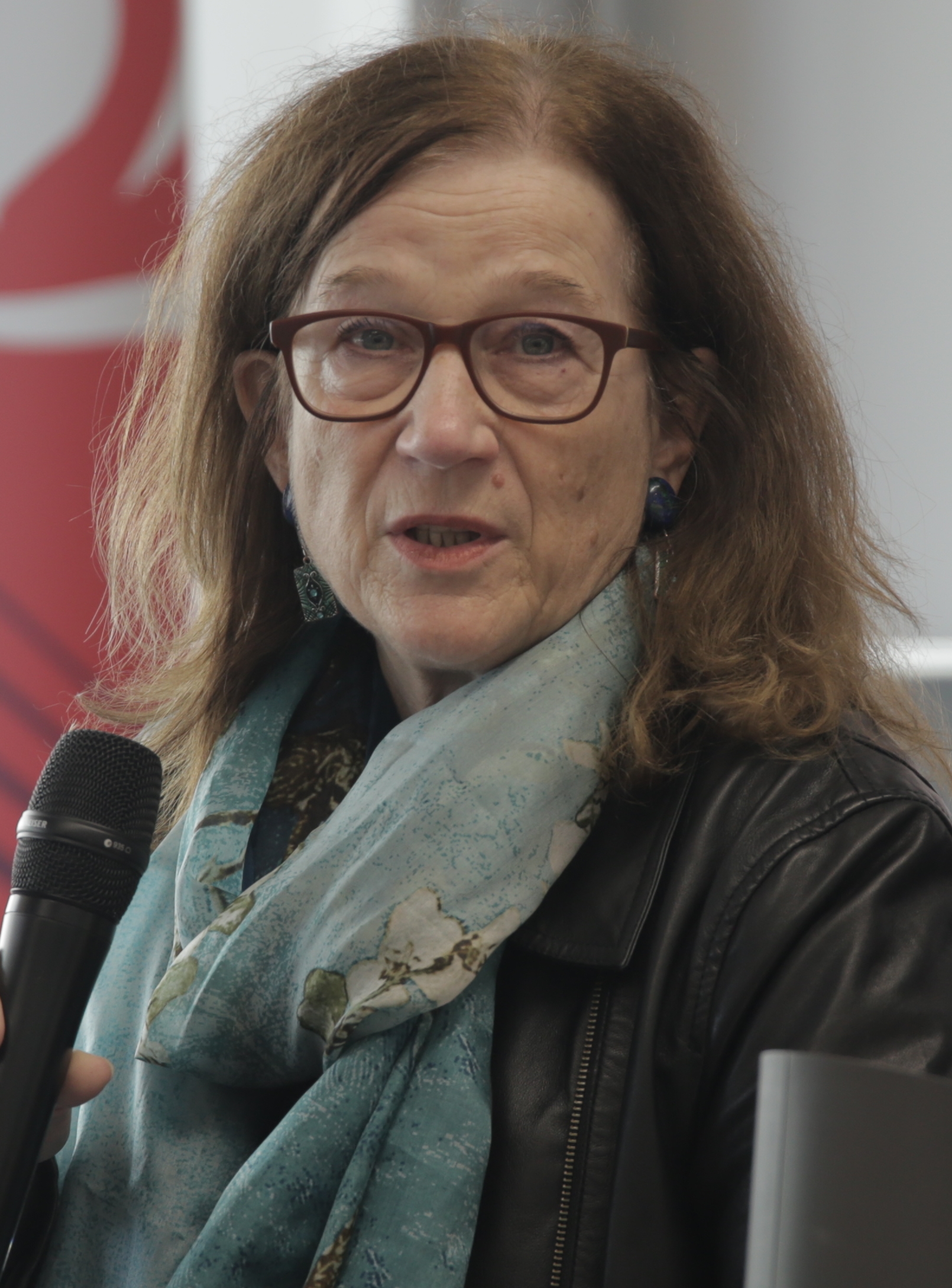
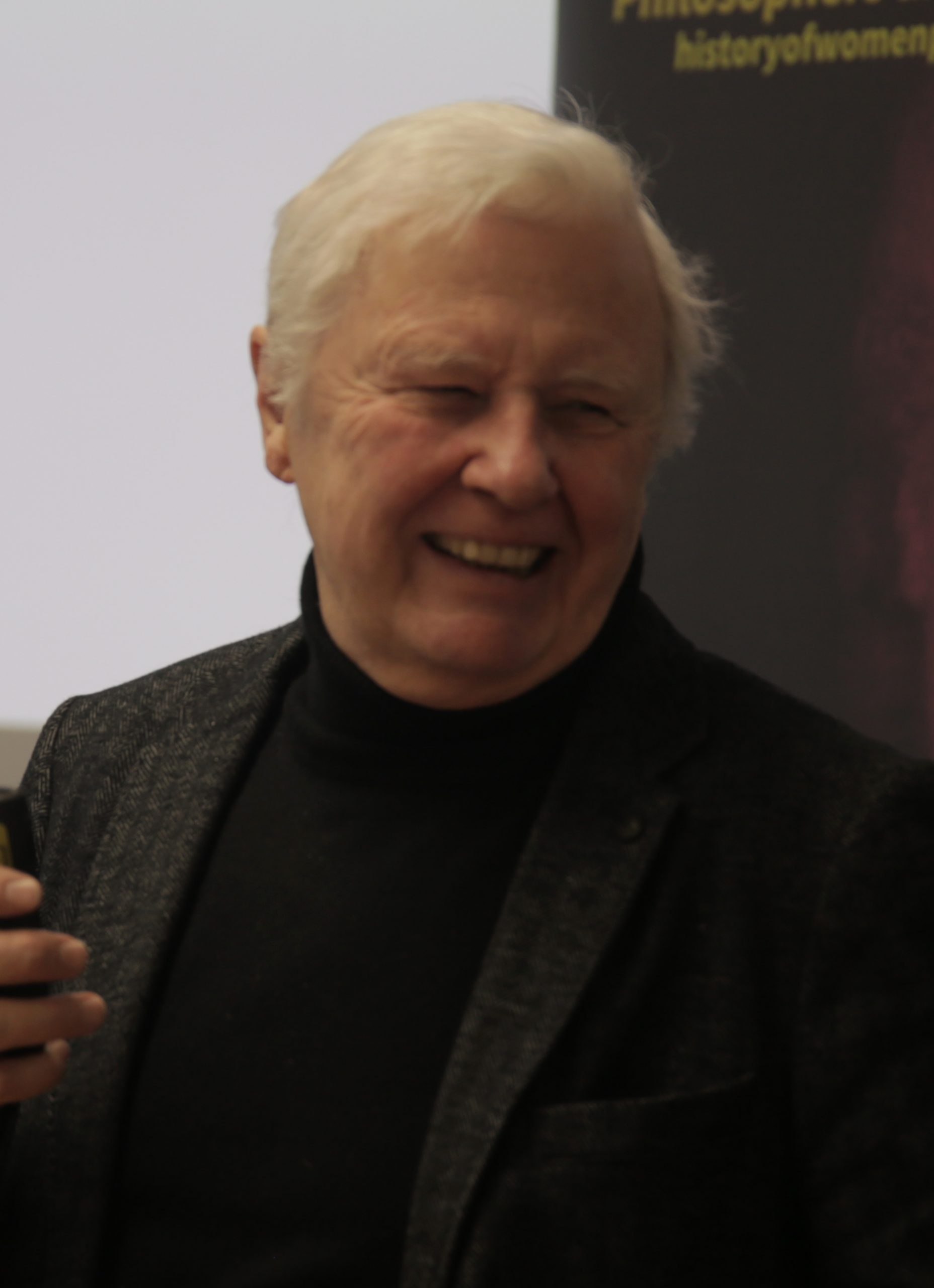
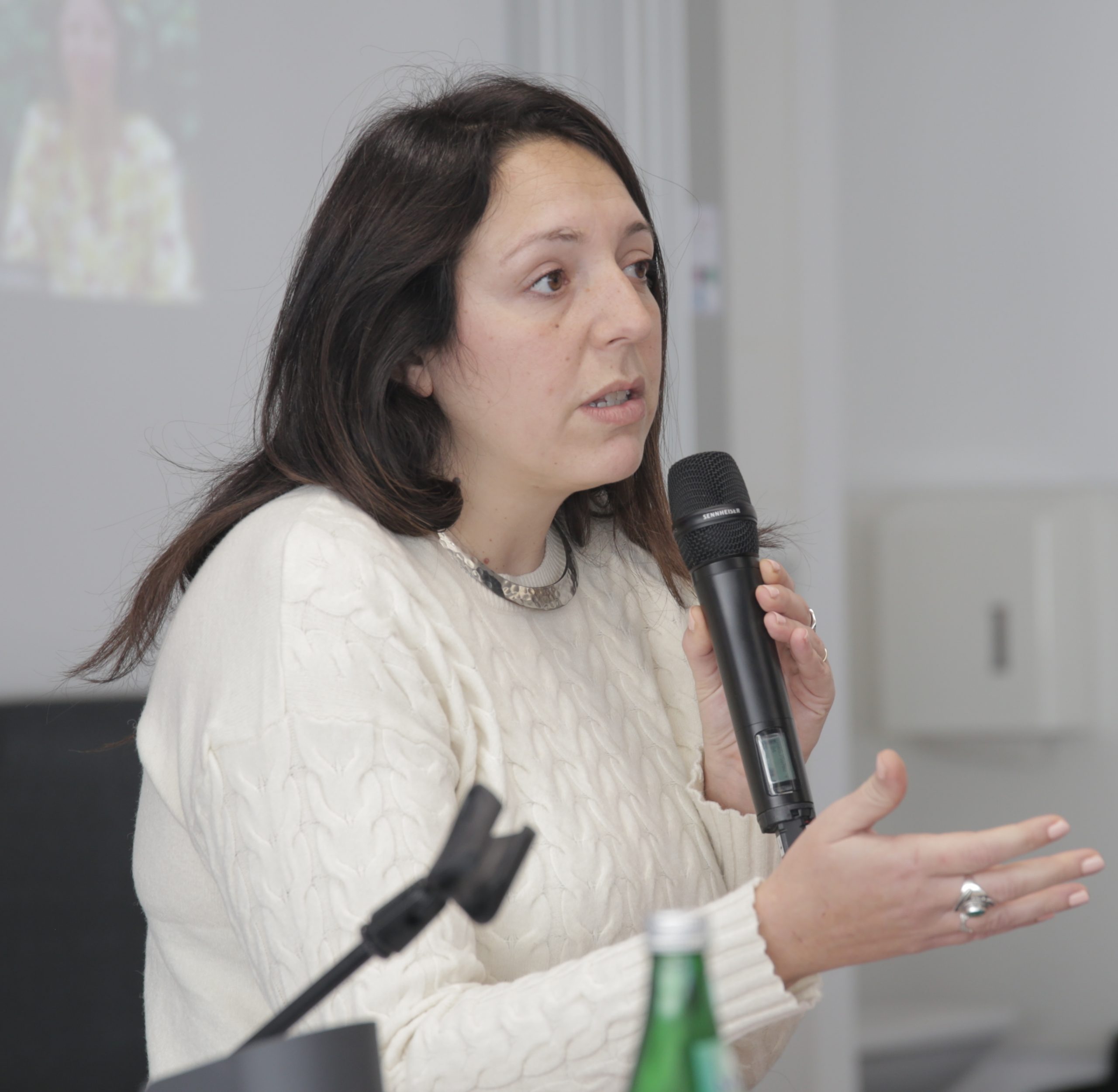
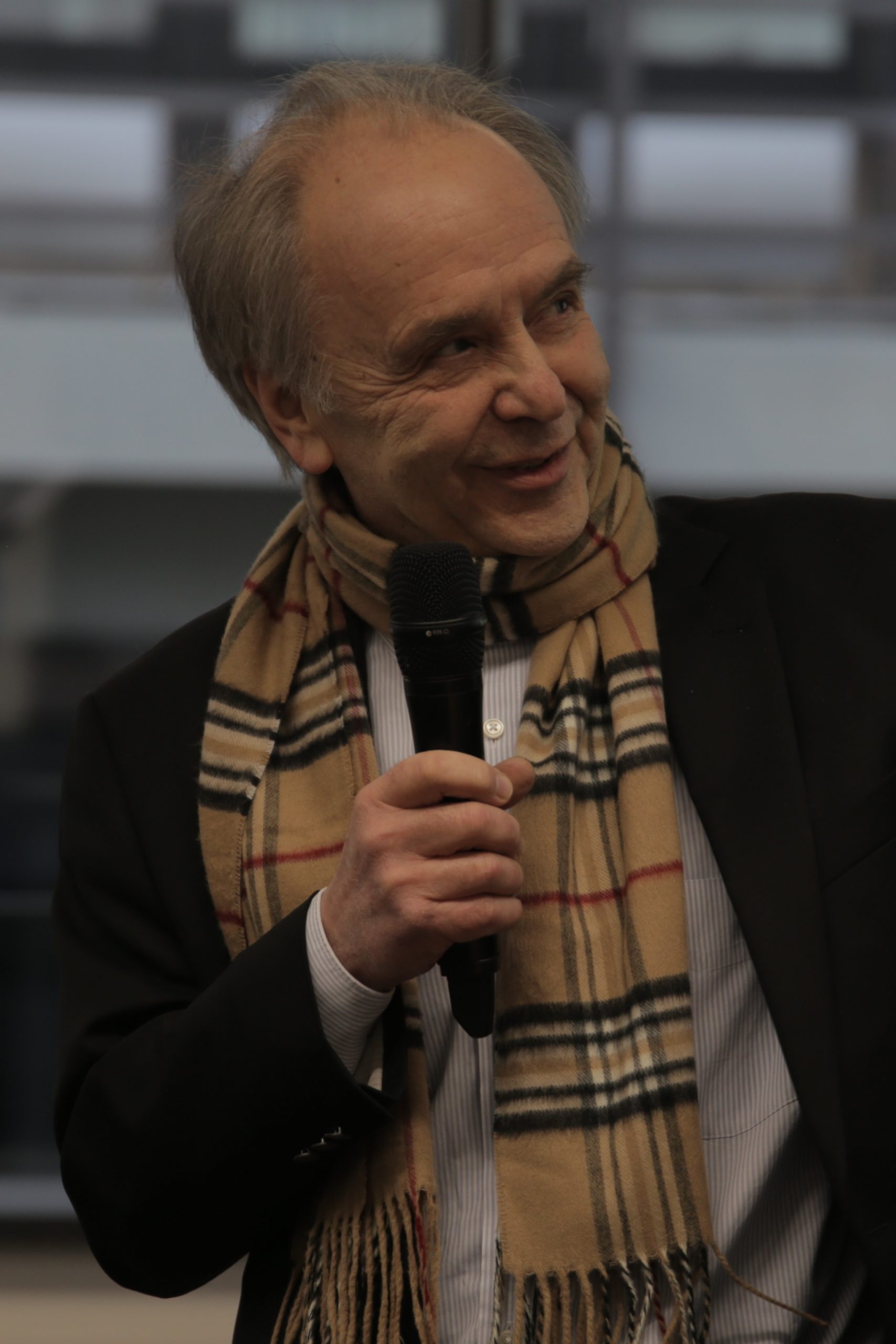
You cannot copy content of this page








